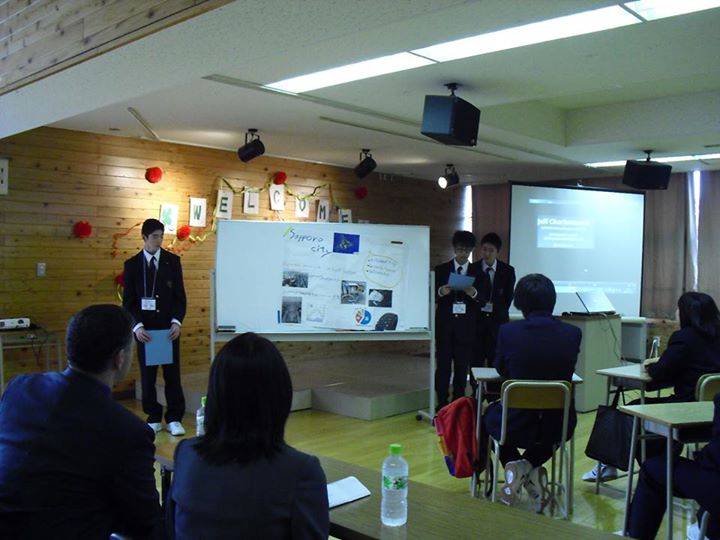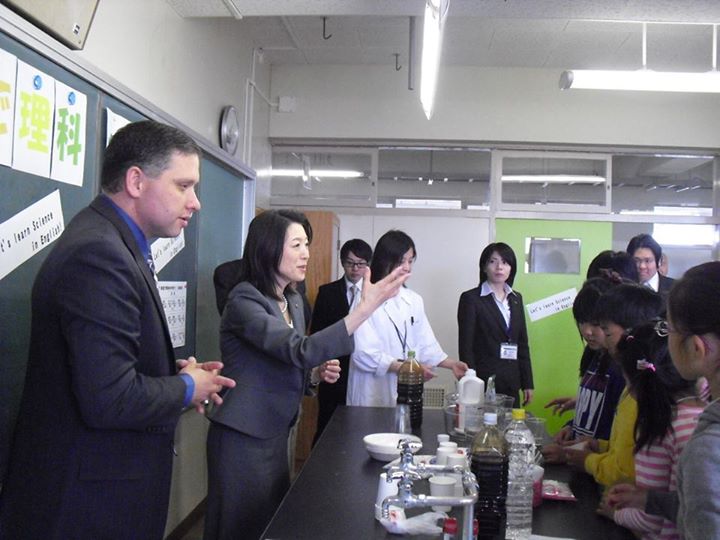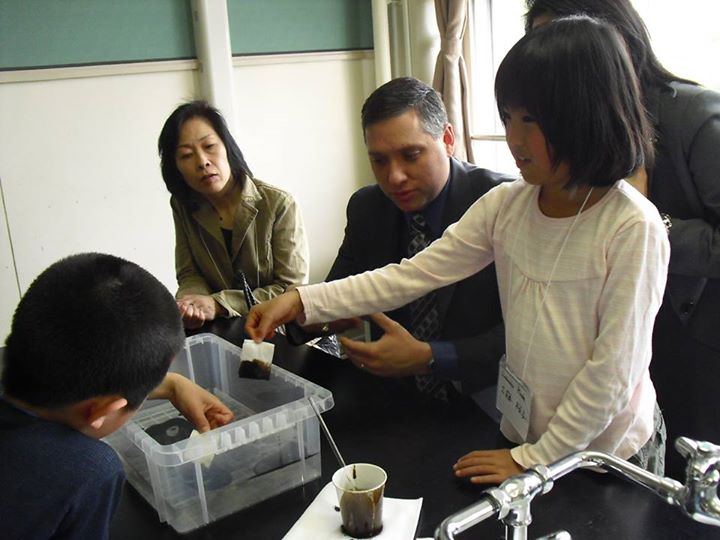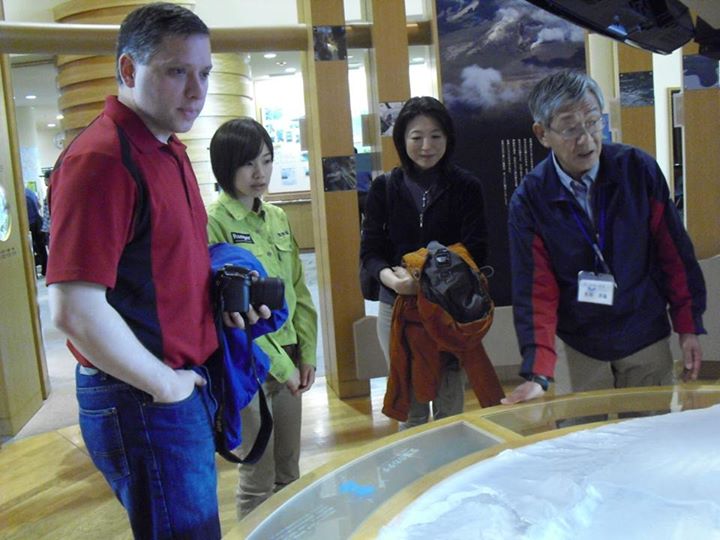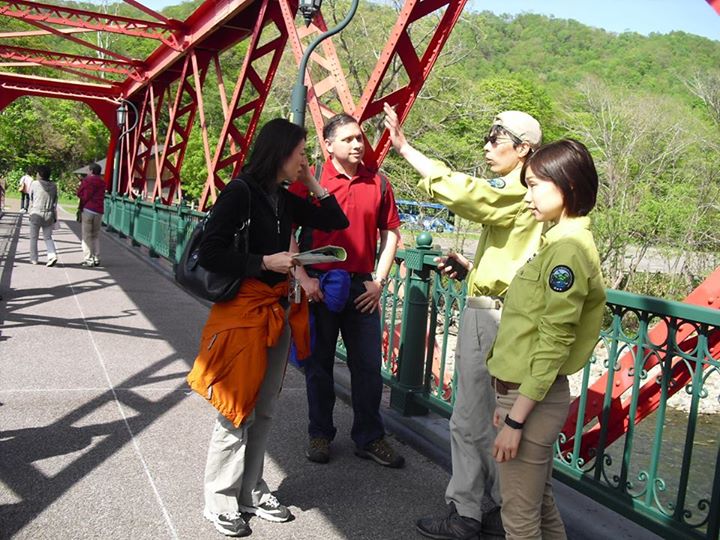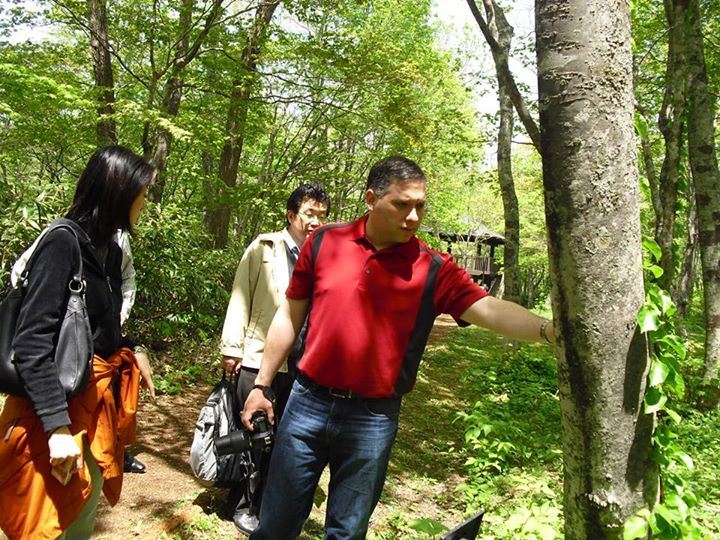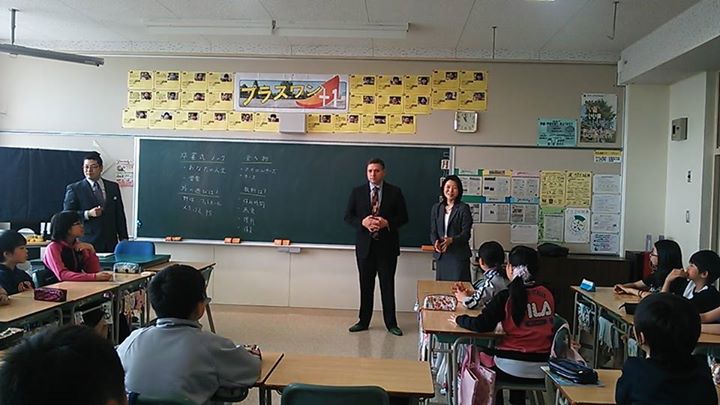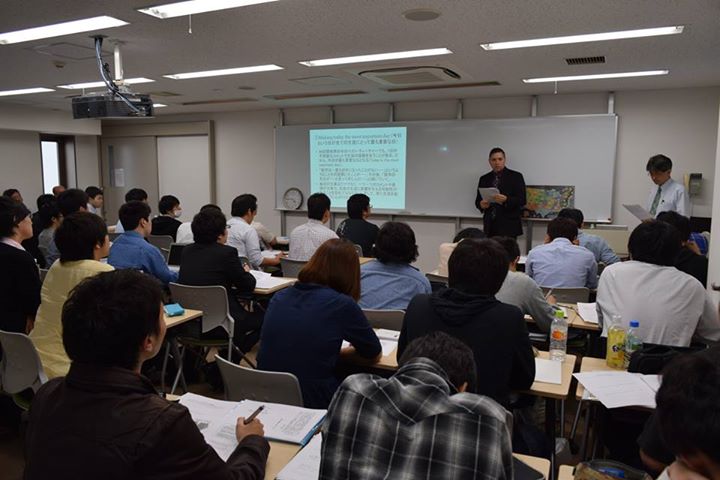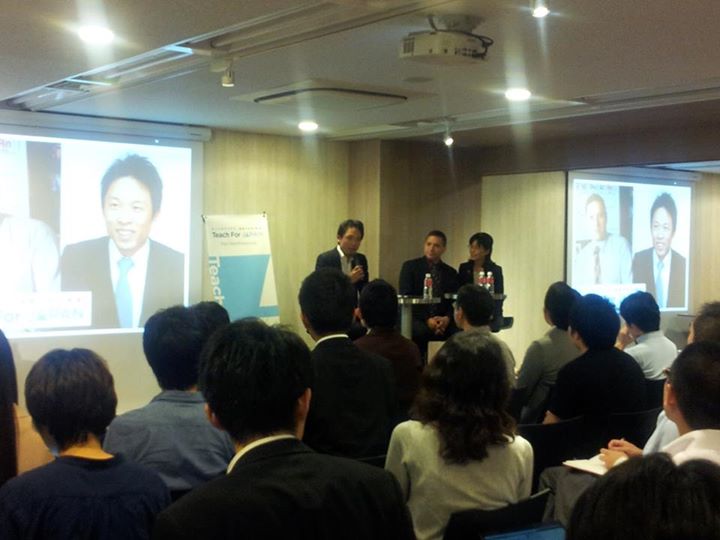Saturday, May 24, 2014
National Teacher of the Year 2013, Mr. Jeffrey Charbonneau visited SEISA Momiji Junior High School in May 24th Saturday.
As a part of inauguration event of SEISA Momiji Junior High School, there was a special teaching lesson “Let’s Learn Science (Ecology) in English” for elementary school students, who are in 5th or 6th grade, and their parents in Sapporo city.
After the talk about oil spill accidents in ocean and their negative effects on environment, students did the experiment titled as “Let’s clean the water as you are a scientist” by pouring black oil into water.
During the experiment, students tried soap, sand, and cotton to clean the water. As Mr.Charbonneau saw the trials and errors by students, he praised and advised another way. In this lesson, he did not teach the answer right away and did encourage and watch their processes on experiment. His procedure of lesson was amazed by Japanese teachers and journalists.
After the experiment, there was a research, done by all graders from SEISA Momiji Junior High School, on creating Sapporo’s natural environment. It was presented by 8th graders. According to their presentation, studded tire causes an air pollution by scraping asphalt on road. Therefore, an act of prohibition on studded tire was passed in Sapporo City.
The students were surprised that there is no such law in an area where Mr. Charbonneau lives and studded tires are still in use.
Sunday, May 25, 2014
The second day of visit in Hokkaido, Mr. Charbonneau gone for nature observation at Shikotsu Lake with rangers.
The rangers explained how Shikotsu Lake was created from volcanic activities. Also, he rode onto the underwater pleasure boat and observed colummer joint on bottom of the lake. The weather was very nice that light entered into bottom of the lake and beautiful.
Mr. Charbonneau listened and interested about systems of Japanese National Park and holiday village.
Monday, May 26, 2014
Mr. Charbonneau visited Sapporo Momiji-no-mori Elementary School. Elementary school students in Sapporo were really active that as he arrived school, they started talking on him right away, without an interpreter.
First period, Mr. Charbonneau entered to science class “Dry Cell Battery & Motor” at Grade 4-II by Mr. Miura.
Second Period, interaction among Mr. Charbonneau & students at Grade 6-II.
“What food do you like?” from student. Mr. Charbonneau answered “BBQ, especially Genghis Khan BBQ which I ate yesterday.” His answer excited the interaction.
The word “manga” can be used in the U.S. as like in Japan. It was new discovery for students that the most favorite food in American kids’ was “macaroni & cheese.”
After the interaction, Mr. Charbonneau visited principal of Momiji-no-mori Elementary School and discussed about what are the roles of elementary school in issues of regional education and how should be done.
Lunch will be American food that he does not see for long time. He will eat at Burger King.
Tuesday, May 27, 2014
There was Mr. Jeffrey Charbonneau’s lecture at Japan Professional School of Education (http://www.kyoiku-u.jp/). The contents of lecture were “Six necessary keys for how to become a good teacher and how to do a good teaching.”
In these keys, the common goal is to teach how to overcome the difficulties that faced by students, which leads to gain confidence within the students. Interesting point was that the relationship among teacher and students must be created before course(s) started. Also, he mentioned that “Teachers and staff are also students that they should be helping and teaching each other when they are working together.”
One of students at lecture questioned him that “If there is a student with learning disabilities, the time spend on this student would be longer than other and may lead to create less or vague relationship with students?” Mr. Charbonneau answered that “I equally make relationships with students yet ways to create relationship with students are different.”
The place was moved to Ebisu, Tokyo. There was a conversation with Mr. Yusuke Matsuda, the chief executive officer of “Teach for Japan.” The main theme of conversation was “What is a good teacher?” The requirements for a good teacher are passion, flexibilities, and confidence.
Passion meant that passion for teaching and love for students. Flexibility meant for teach individual students to recognize that learning materials are closely related to their daily life. Confidence for teaching meant that the teacher knows the material in depth in own field. If there are questions that the teacher does not know, the teacher must say honestly that “I will study with you guys (students).” Since there is a limit of knowledge that you may have, then you should claim honestly when you don’t have knowledge.
We made a limit on number of audience for 50 people, but 100 audience wanted to watch this conversation. So that we moved the place for a larger space. We assume that so many people were interested in this theme. After the conversation, so many audience came up for greeting and questioning him. The end time was exaggerated more than we scheduled, which showed the event came livened up.
